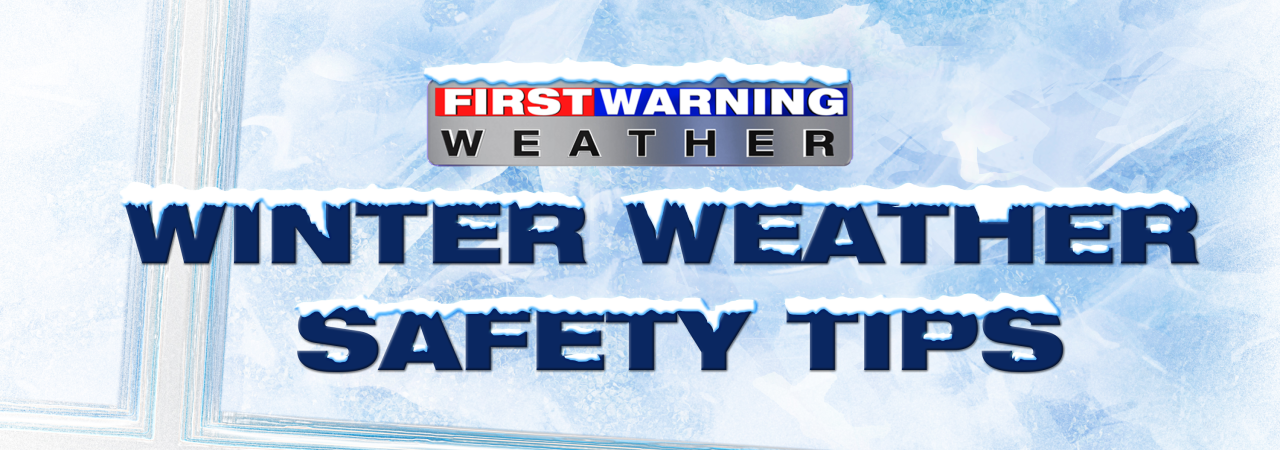Winter Weather Safety Tips
Weather
Keep Yourself Safe During a Winter Storm
Indoors
- Stay inside and wear warm clothing. Clothes should be loose-fitting and lightweight.
- Tune into your First Warning Weather team on-air, online or with the Erie News Now App.
- Bring your pets inside and make sure they have plenty of water.
- Eat regularly. (Food provides energy for the body and produces heat).
- Conserve energy. Some storms can last for a few days which places great demands on electric, gas, and fuel distribution. So, lower thermostat to 65° during the day and to 55° at night. Close off unused rooms and stuff towels or rags in cracks under the door.
- Check on, the elderly, neighbors and relatives.
Outdoors
- Cover exposed skin with hats, gloves or mittens.
- Cover your mouth and protect your lungs from the severely cold air.
- Watch for signs of hypothermia and frostbite.
- Keep dry and change wet clothes.
- Avoid overexertion, such as shoveling heavy snow, pushing a vehicle, or walking in deep snow.
- Walk carefully on snowy or icy sidewalks.
Cars
- Keep an emergency survival kit in your vehicle.
- Survival kit should include: Blankets, newspapers, plastic bags, canned fruits, nuts and high energy snacks, cell phone charger, bottle water.
- Make sure someone knows your final destination and let them know when you arrived.
- Drive with caution.
If you become stranded:
- Stay in the vehicle and wait for help.
- Run engine occasionally to keep warm. Turn engine on for 10 minutes each hour or five minutes every half hour this reduces risk of carbon monoxide poisoning and conserves fuel.
- Leave overhead light on when running engine so people can see you.
- If more than one person is in the vehicle, take turns sleeping. This will increase body temperature and circulation, otherwise you could freeze to death.
- Huddle together to keep warm.
- Drink fluids to stay hydrated
- Avoid overexertion. Cold weather puts strain on the heart.
Adapted from American Red Cross



